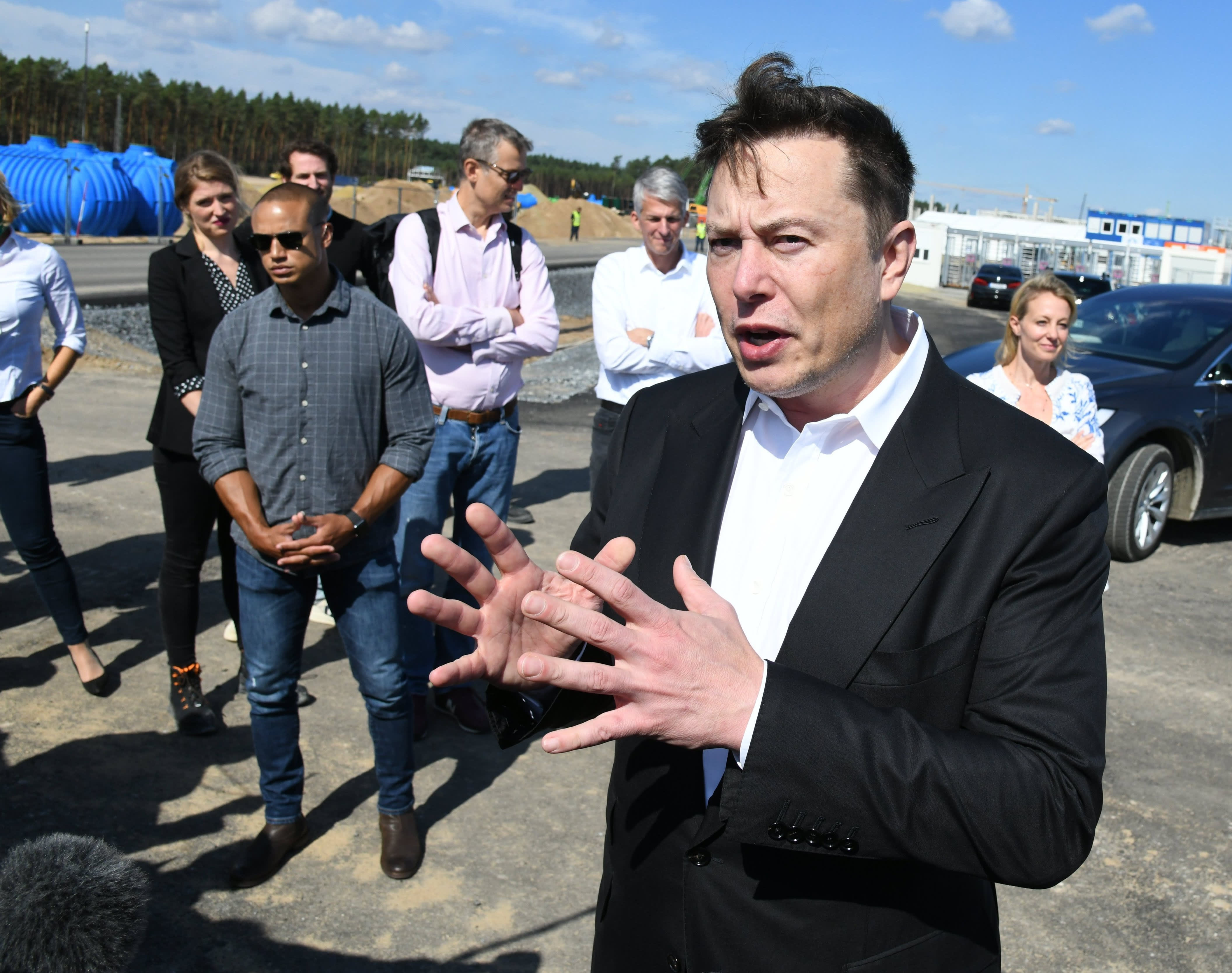
Tesla is suing the U.S. government and U.S. Trade Representative Robert Lighthizer over the Trump administration's tariffs on items Tesla imports from China.
The electric-car maker wants the court to declare two batches of Trump administration tariffs to be void, and refund Tesla the tariffs it paid with interest, according to the lawsuit filed in the U.S. Court of International Trade.
The specific tariffs at issue are known as List 3 and List 4. List 3 went into effect on 2018 and currently places 25% duties on $200 billion of imported goods from China. List 4 went into effect in 2019 and currently consists of a 7.5% tariff on $120 billion of Chinese imports. Both lists contain hundreds of very specific items, ranging from raw materials to electronic components. The lawsuit did not describe which items Tesla paid tariffs on, nor how much it paid. Tesla and the U.S. trade representative didn't immediately return requests for comment.
The U.S. trade representative's "imposition of List 3 and List 4 duties was arbitrary and capricious because USTR did not provide meaningful opportunity to comment, failed to consider relevant factors when making its decision, and failed to draw a rational connection between the facts found and the choices made," Tesla's lawyers argued in Wednesday's filing, which also named the acting commissioner of U.S. Customs and Border Protection, Mark Morgan, as a defendant.
Companies were given an opportunity to request a waiver on specific items as part of the tariff process. Tesla applied for waivers in 2019 on artificial graphite, silicon oxide and door ring tailor welded blanks, and all three were granted with an expiration date in August 2020, according to the USTR website.
In 2019, U.S. trade officials rejected Tesla's request for relief on 25% tariffs on the Model 3's car computer and screen, arguing that the parts use technologies strategically important to Chinese national security programs. Tesla said that the affected parts are the "brain" of its autopilot system.
"Increased tariffs on this particular part cause economic harm to Tesla, through the increase of costs and impact to profitability," Tesla wrote in its waiver request. "Due to the complexity of the Model 3 Car Computer and the demanding timelines necessary for Tesla's exponential growth, Tesla is unable to find another manufacturer to meet our requirements."
tinyurlis.gdv.gdv.htu.nuclck.ruulvis.netshrtco.detny.im
مقالات مشابه
- COVID-19 همه گیر را فشار 60 میلیون به "فقر شدید": بانک جهانی
- دهلی نو-نویدا مرزی مهر و موم شده در میان COVID-19 بحران برخی استثنائات مجاز
- دختر گمشده در بغل سگ ولگرد به مدت 18 ساعت از کولاک جان سالم به در برد
- داو آتی پاپ 150 امتیاز پس از رنگ آبی تراشه شاخص تظاهرات بالای 25,000
- توضیح دستگاه میکروب سنج
- هیچ پستی رای گیری برای رای دهندگان بالاتر از 65 در بیهار سایر نظرسنجی ها در حال حاضر
- 7 Tricks for Using Mirrors to Make Your Small Space Look Lighter and Brighter
- From travel pods to private jets, affluent travelers are eager to make vacations happen
- شرکت صادرات و واردات کالاهای مختلف از جمله کاشی و سرامیک و ارائه دهنده خدمات ترانزیت و بارگیری دریایی و ریلی و ترخیص کالا برای کشورهای مختلف از جمله روسیه و کشورهای حوزه cis و سایر نقاط جهان - بازرگانی علی قانعی
- مجمع جلسه بسیار مهم در حال حاضر برای Ashok Gehlot او درگیری با فرماندار